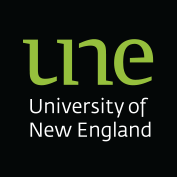 Yvette Alcott is conducting research into the processes we use when forming impressions of others and deciding who to include in our national and cultural in-groups. She has been examining the degree to which racial appearance affects the assessment of immigrants by a host population, and how it might affect their preference for how these groups settle into society (Alcott & Watt, 2017). Results so far have found that Australians, as a host population, prefer immigrants to integrate, that is, to keep aspects of their original cultural heritage while adopting aspects of the dominant host culture. Equally, they prefer immigrants to assimilate, which means immigrants discard their original culture and adopt the host culture entirely. The results also demonstrate that these preferences are irrespective of the racial appearance of the immigrant group, which suggests that racial appearance is not a large influencing factor when Australians assesses immigrant groups.
Yvette Alcott is conducting research into the processes we use when forming impressions of others and deciding who to include in our national and cultural in-groups. She has been examining the degree to which racial appearance affects the assessment of immigrants by a host population, and how it might affect their preference for how these groups settle into society (Alcott & Watt, 2017). Results so far have found that Australians, as a host population, prefer immigrants to integrate, that is, to keep aspects of their original cultural heritage while adopting aspects of the dominant host culture. Equally, they prefer immigrants to assimilate, which means immigrants discard their original culture and adopt the host culture entirely. The results also demonstrate that these preferences are irrespective of the racial appearance of the immigrant group, which suggests that racial appearance is not a large influencing factor when Australians assesses immigrant groups.
The problem is, people of a minority racial appearance who have grown up in Australia and are completely enculturated as Australians do suffer from prejudice and discrimination (Alcott, 2007). So where does this leave intercountry adoptees or Australians who are fifth or sixth generation but with a minority ancestry such as Chinese? Do we still see these long-term Australians as “foreign”? What issues of belongingness does this raise for all Australians?
Yvette is now further examining the processes people use when deciding to include someone of a different racial appearance into our own national and cultural ingroup. She is investigating the minimum amount of information we need to correctly assess someone as Australian, as well as investigating whether or not racial prejudice prevents us from being able to make this assessment correctly.
References
Alcott, Y. (2007). Looking Asian, “being” Australian: The impact of racial appearance versus cultural background on discriminatory behaviour. Unpublished Honours thesis. UNE


Recent Comments